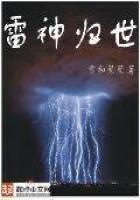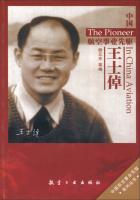But all this time I am neglecting my new acquaintance on the top of the stove. In reality I did not neglect him, but listened most attentively to every word of the long tale that he recited. What it was all about I could only vaguely guess, for I did not understand more than ten per cent of the words used, but I assumed from the tone and gestures that he was relating to me all the incidents and symptoms of his illness. And a very severe illness it must have been, for it requires a very considerable amount of physical suffering to make the patient Russian peasant groan.
Before he had finished his tale a woman entered, apparently his wife.
To her I explained that I had a strong desire to eat and drink, and that I wished to know what she would give me. By a good deal of laborious explanation I was made to understand that I could have eggs, black bread, and milk, and we agreed that there should be a division of labour: my hostess should prepare the samovar for boiling water, whilst I should fry the eggs to my own satisfaction.
In a few minutes the repast was ready, and, though not very delicate, was highly acceptable. The tea and sugar I had of course brought with me; the eggs were not very highly flavoured; and the black rye-bread, strongly intermixed with sand, could be eaten by a peculiar and easily-acquired method of mastication, in which the upper molars are never allowed to touch those of the lower jaw. In this way the grating of the sand between the teeth is avoided.
Eggs, black bread, milk, and tea--these formed my ordinary articles of food during all my wanderings in Northern Russia. Occasionally potatoes could be got, and afforded the possibility of varying the bill of fare. The favourite materials employed in the native cookery are sour cabbage, cucumbers, and kvass--a kind of very small beer made from black bread. None of these can be recommended to the traveller who is not already accustomed to them.
The remainder of the journey was accomplished at a rather more rapid pace than the preceding part, for the road was decidedly better, though it was traversed by numerous half-buried roots, which produced violent jolts. From the conversation of the driver I gathered that wolves, bears, and elks were found in the forest through which we were passing.
The sun had long since set when we reached our destination, and I
found to my dismay that the priest's house was closed for the night. To rouse the reverend personage from his slumbers, and endeavour to explain to him with my limited vocabulary the object of my visit, was not to be thought of. On the other hand, there was no inn of any kind in the vicinity. When I consulted the driver as to what was to be done, he meditated for a little, and then pointed to a large house at some distance where there were still lights. It turned out to be the country-house of the gentleman who had advised me to undertake the journey, and here, after a short explanation, though the owner was not at home, I was hospitably received.
It had been my intention to live in the priest's house, but a short interview with him on the following day convinced me that that part of my plan could not be carried out. The preliminary objections that I should find but poor fare in his humble household, and much more of the same kind, were at once put aside by my assurance, made partly by pantomime, that, as an old traveller, I was well accustomed to simple fare, and could always accommodate myself to the habits of people among whom my lot happened to be cast. But there was a more serious difficulty. The priest's family had, as is generally the case with priests' families, been rapidly increasing during the last few years, and his house had not been growing with equal rapidity. The natural consequence of this was that he had not a room or a bed to spare. The little room which he had formerly kept for occasional visitors was now occupied by his eldest daughter, who had returned from a "school for the daughters of the clergy," where she had been for the last two years. Under these circumstances, I was constrained to accept the kind proposal made to me by the representative of my absent friend, that I should take up my quarters in one of the numerous unoccupied rooms in the manor-house. This arrangement, I was reminded, would not at all interfere with my proposed studies, for the priest lived close at hand, and I might spend with him as much time as I liked.
And now let me introduce the reader to my reverend teacher and one or two other personages whose acquaintance I made during my voluntary exile.















